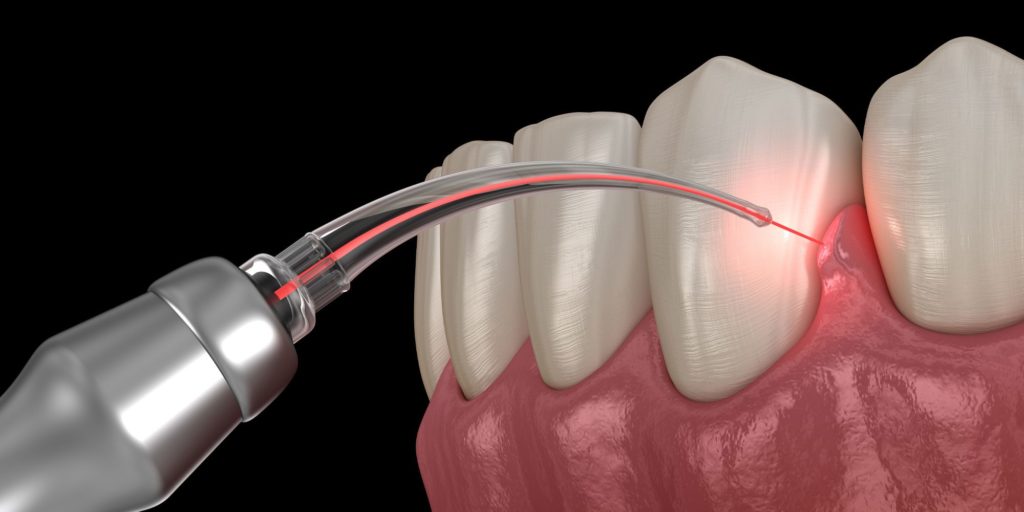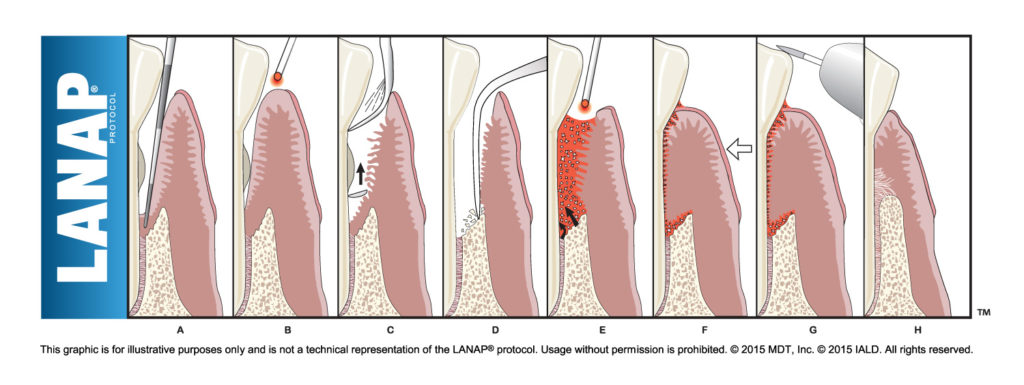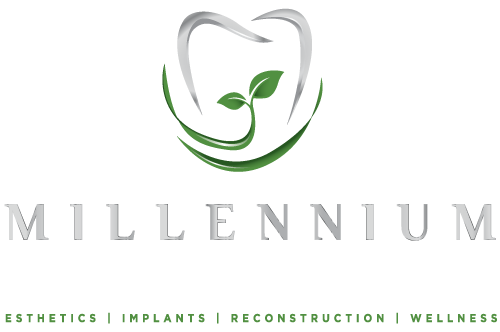

Laser periodontics revolutionized the way periodontists treat patients with gum disease. Laser-assisted treatment offers greater precision for removal of harmful bacteria and unhealthy gum tissue. This approach ensures the smallest amount of gum tissue is removed; stimulates stem cells to form new connective tissues, bone, and collagen; and helps regenerate lost ligaments and bone around teeth. In the hands of the skilled periodontists at Millennium Periodontics, laser dentistry results in shorter appointments, less pain, and faster healing, while effectively reducing your risk of gum disease progression and infection. Our skilled team of periodontists offers state-of-the-art periodontal treatment using minimally invasive laser periodontics including gingevectomy and frenectomy in Chicago, IL.
If you have bleeding gums in Chicago, IL reach out to our experienced team at Millennium Periodontics, we can help.

LANAP stands for Laser Assisted New Attachment Procedure, with attachment referring to “attachment” of heathy gum tissue to bone. The LANAP protocol provides a faster, gentler, and more reliable method for resolving issues related to periodontal disease. It’s the only laser gum disease treatment that is FDA-approved and proven to promote gum tissue regeneration. Unlike traditional osseous surgery that involves smoothing the bone around teeth damaged from gum disease-related bacteria, LANAP is scalpel- and suture-free. All laser wavelengths can be used to precisely incise gum tissue for restorative, cosmetic, and periodontal indications. Studies show that several months after LANAP treatment, most patients see a significant reduction in the depth of their periodontal pockets.
If we see a lesion or tumor in your mouth during an exam, we’ll recommend a gum biopsy. During this surgical procedure, we use a laser to remove a small piece of tissue so a pathologist can determine the cause and if the lesion is benign or cancerous. The laser enables performing more precise biopsies without the need for sutures in many cases. While this gentler method of excision usually only requires a local topical anesthetic, you can also receive sedation to ease anxiety.

I understand the information disclosed in this form may be subject to re-disclosure and may no longer be protected by HIPAA privacy regulations and the HITECH Act.
